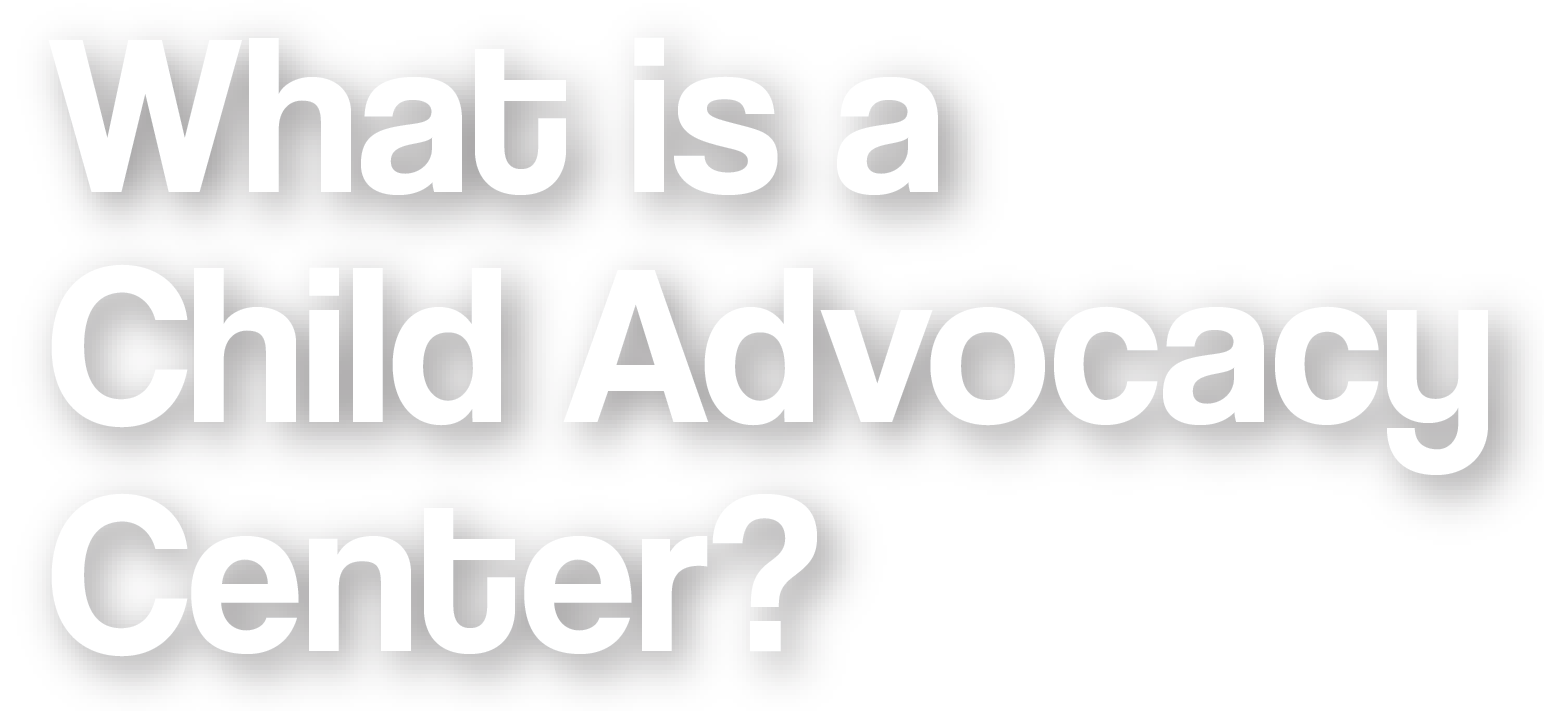
Children’s advocacy centers are community-based, child-friendly, and trauma-informed organizations that coordinate a multidisciplinary response to child maltreatment allegations.
Our fourteen member children’s advocacy centers deliver a best practice model that bring together in one location: child protective services investigators, law enforcement, forensic interviewers, prosecutors, family advocates, and medical and mental health professionals to provide a coordinated, comprehensive response to victims and their caregivers. Children’s advocacy centers provide a safe, neutral environment for children and their families where the child’s well-being is top priority.
At a children’s advocacy center, children can speak to a forensic interviewer who is trained to understand child development, how to manage bias, and is knowledgeable in addressing secondary trauma and other best practices for interviewing children. This multidisciplinary team approach results in better outcomes for child abuse investigations.
Why CACs?
Prior to the advent of child advocacy centers, abused children faced a maze of entities in reporting abuse and getting appropriate therapeutic care. All too often, professionals involved with the case weren’t adequately prepared or trained to respond to child abuse and were unfortunately learning on the job how to respond to these child victims. Families often faced frustration with the system and withdrew from the process, resulting in no conviction for the perpetrator and no healing for the child.
The overriding benefit of the child advocacy center model is that the case investigations are coordinated from the onset. They begin more timely, fewer cases are missed, families receive appropriate referrals for the proper medical exams, children receive evidenced-based therapy sooner and the CAC collaborative model reduces duplication of resources. The collaborative approach is instrumental in assuring that all services provided by the team are performed at the highest level and that the entire team works efficiently for the benefit of the child and their non-offending family members.
At the local child advocacy centers, a child can relate his or her experience one time, in one place. Rather than being shuffled between doctors, police, counselors, and child advocates, the model strives to bring these professionals together while minimizing trauma to the victim. Child advocacy centers provide a comfortable, child-friendly setting where a child can feel safe telling his or her story. Our multidisciplinary teams are made up of trained professionals whose primary goal is to reduce the burden on children and help facilitate their recovery.

